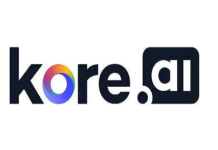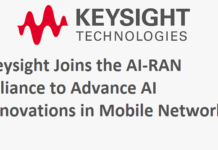
As global leaders prepare to discuss the world’s most pressing challenges at the G7 Summit in Apulia, Italy, I am excited to share that the AI-Enabled Information and Communication Technology (ICT) Workforce Consortium, led by Cisco and joined by industry leaders Accenture, Eightfold, Google, IBM, Indeed, Intel, Microsoft, and SAP, is extending our reach to include all G7 countries.
According to a recent study from the International Labour Organization, generative AI is more likely to augment than destroy jobs by automating some tasks rather than taking over a role entirely. But how? What new skills will workers need to adapt? How can the private and public sectors meet the challenges and opportunities presented by the AI revolution?
We don’t have all the answers, but our mission as a Consortium is clear: to take a proactive stance in addressing the profound impact of AI on the workforce.
About the ICT Workforce Consortium
Catalyzed by the U.S.-EU Trade and Technology Council’s (TTC) Talent for Growth Task Force and informed by input from the U.S. Department of Commerce, the Consortium is a private sector collaboration focused on exploring AI’s impact on ICT job roles and enabling workers to find and access relevant training programs. We are joined by advisors from the American Federation of Labor and Congress of Industrial Organizations, CHAIN5, Communications Workers of America, DIGITALEUROPE, the European Vocational Training Association, Khan Academy, and SMEUnited.
Launched April 2024 in proximity to the 6th U.S.-EU Trade and Technology Council Ministerial Meeting in Belgium, the Consortium committed to a Phase 1 evaluation of the impact of AI on 56 ICT job roles. These job roles include 80% of the top 45 ICT job titles garnering the highest volume of job postings for the period February 2023-2024 in the United States and five of the largest European countries by ICT workforce numbers (France, Germany, Italy, Spain, and the Netherlands) according to Indeed Hiring Lab. In response to feedback from leaders across the globe, we are expanding our Phase 2 scope to include all G7 countries—adding Canada, Japan, and the United Kingdom to our analysis of the most in-demand ICT job roles.
An Inclusive Global Action Plan for AI
The Consortium seeks to analyze and act, ensuring that workers around the globe are equipped with the necessary skills to thrive in an AI-driven future. We are leveraging the collective insights of our members and advisors to recommend and amplify reskilling and upskilling training programs that are inclusive and can benefit multiple stakeholders – students, career changers, current IT workers, employers, and educators – in order to skill workers at scale. This vision is deeply aligned with the G7’s commitment to fostering workforce development amidst the rapid adoption of AI across their economies.
Our work has just begun! We look forward to collaborating with G7 governments on the AI Action Plan as we evolve our work to expand its impact, particularly among women, underrepresented communities, and in developing countries. As technology accelerates and global organizations assess how to move forward, we need to be diligent in bringing people forward. Understanding how AI intersects with ICT roles is the first and most important step in making sure the digital divide doesn’t deepen.
This summer the AI-Enabled ICT Workforce Consortium will deliver on this with its Phase 1 findings and actionable insights to help employers and employees prepare for the future. Beyond that, we anticipate adding new companies, advisors, and countries to our efforts to ensure that workers have the tools, training, and opportunities to succeed in the AI era. Today’s announcement that we are extending our reach to include all G7 countries is an exciting start, but just the beginning of this long and important journey.
Source: CISCO Blog


















